Flood-threatened homes may not receive protection, report warns
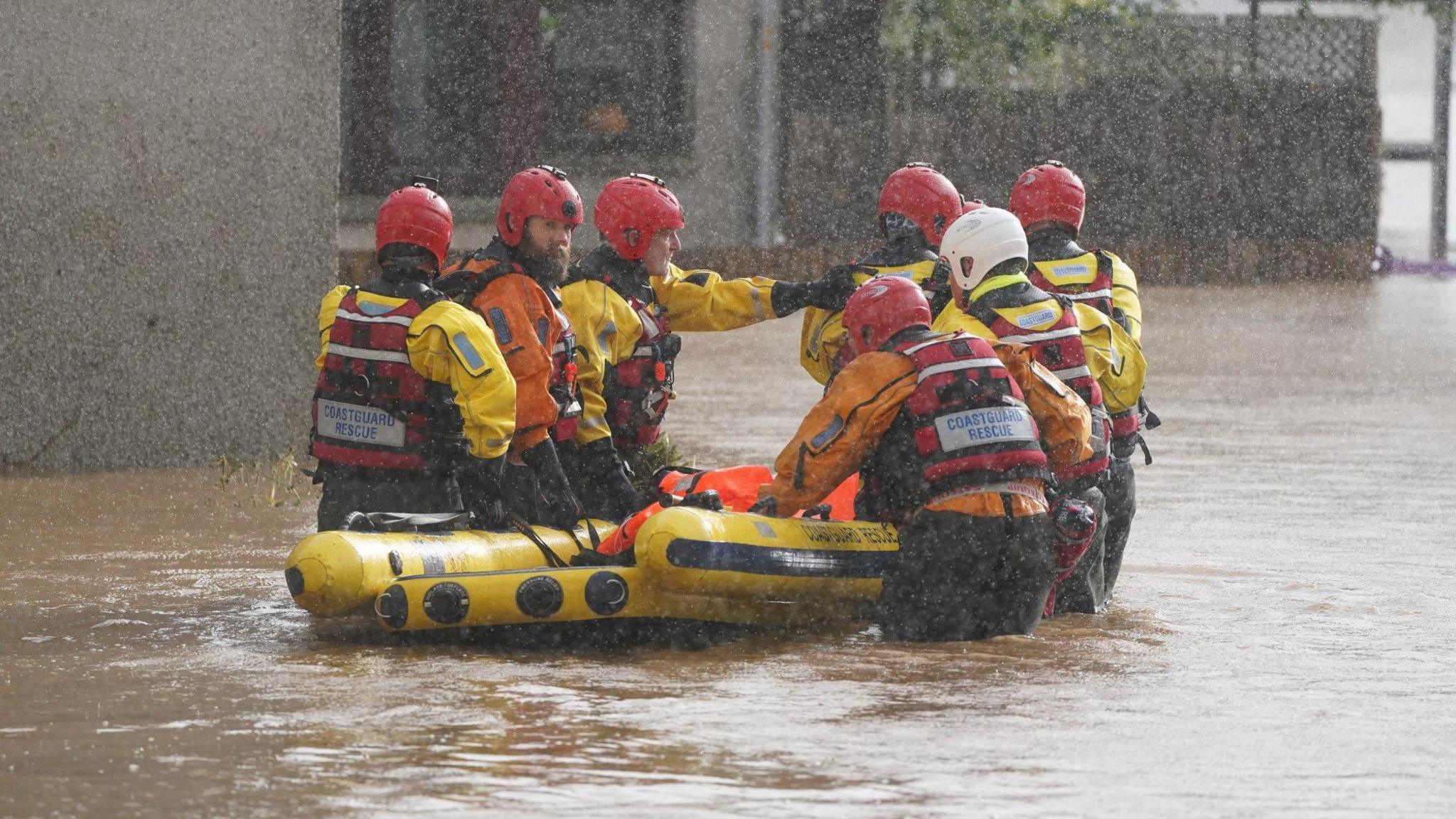
Emergency services used boats to rescue residents from floods in Brechin during Storm Babet in 2023
- Published
Flood protection for Scottish homes identified as "at risk" may not be built because of problems with leadership and funding, watchdogs have warned.
A joint report by the auditor general and the Accounts Commission has concluded that the system for allocating money to projects is not "fit for purpose".
The failings are likely to affect some of the 400,000 households threatened with flooding by 2080 because of climate change, a significant increase on the 284,000 currently at risk.
The Scottish government said it would consider the report's findings but insisted it was working to improve flood resilience in communities.
The report said that existing major flood schemes are taking longer to complete with costs expected to more than double to over £1bn.
That means - it concludes - that fewer homes and communities will be protected than originally expected.
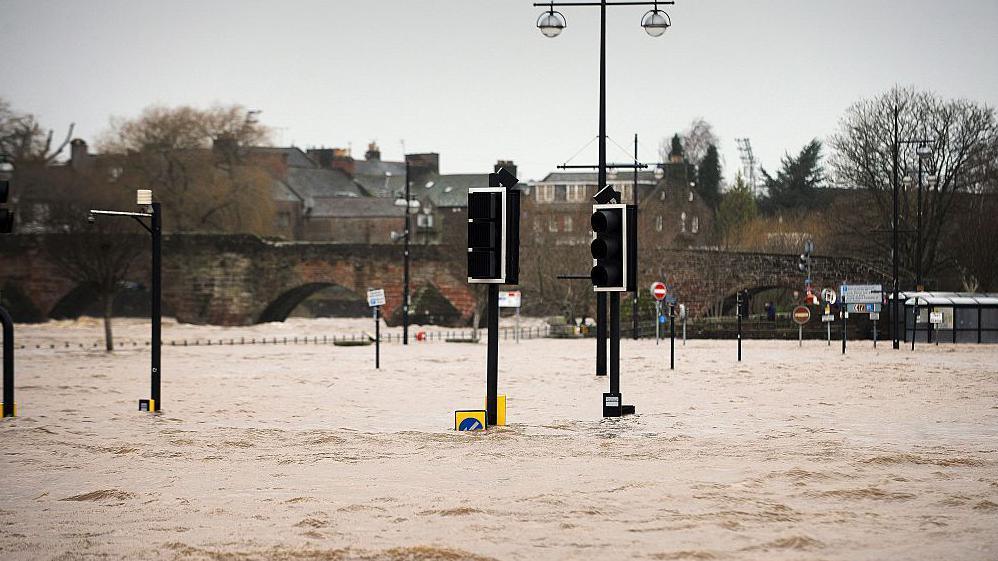
The Whitesands in Dumfries has flooded more than 200 times since records began
The report criticises leadership in public bodies such as the Scottish government, local authorities, Scottish Water and the Scottish Environment Protection Agency (Sepa).
It says there is a lack of clarity around responsibilities and funding, meaning there is a risk that action will not happen at the scale and speed required.
The threat of flooding is one of the most significant impacts that Scotland is already experiencing because of the warming climate.
More intense rainfall is causing localised flooding such as that experienced by Storm Babet in Brechin, Angus, in October 2023.
More than 130 homes were affected when the River South Esk breached defences during "exceptional" rainfall.
The flood wall was built to withstand a one in 200-year weather event but has now been downgraded to being fit for a one in 50-year storm.
Angus Council has said it may have to downgrade the defences even further.
'Worst flood ever'
Kim Clark told BBC Scotland's Good Morning Scotland programme that her home on River Street had been flooded four times over 23 years.
However she said Storm Babet was the "worst one ever".
"I was out of my house for 11 months," she said. "It was a long drying process."
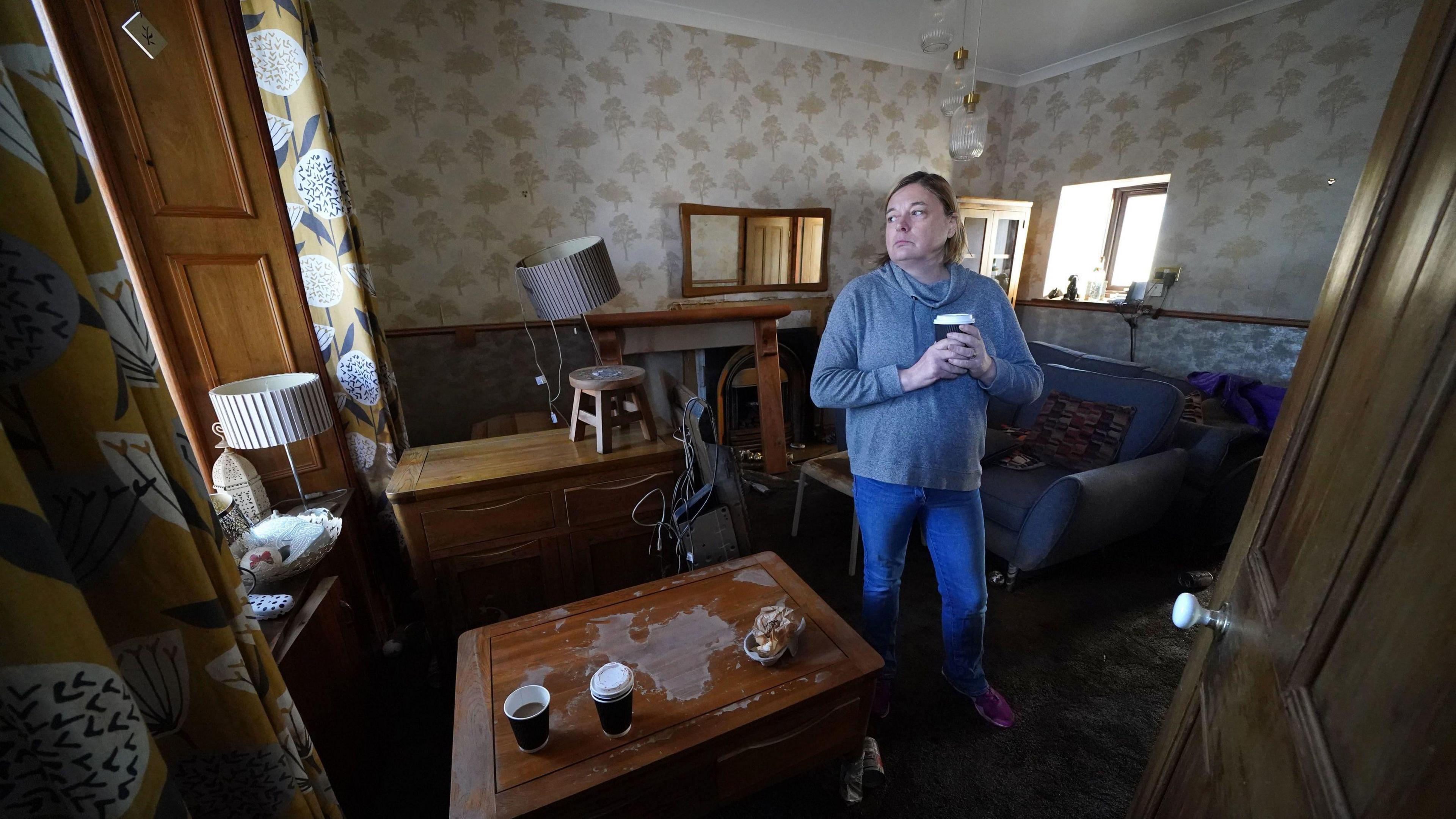
Kim Clark said her house had been flooded four times in 23 years
When asked if the flood protections were adequate, she said: "We haven't got any.
"The big wall at the front of my property will hopefully protect the rest of the street, but my house is directly on the river bank and the wall around the back is lying in bits."
She said her neighbours had moved out and many houses on her street were abandoned, boarded up and vandalised.
Ms Clark added: "Nothing has really been done. All they've done is repair the bottom of the bridge and the wall which was damaged. But everything else is like how it was after the storm."
She added: "If it happens again, I'm walking. I've had enough.
"When we have meetings, it's the same old 'we can't do this, we can't do that'."
Angus Council said there had been a "great deal" of engagement with people impacted by flooding in the area.
It said it had enhanced flood defences and progressed its housing strategy for River Street.
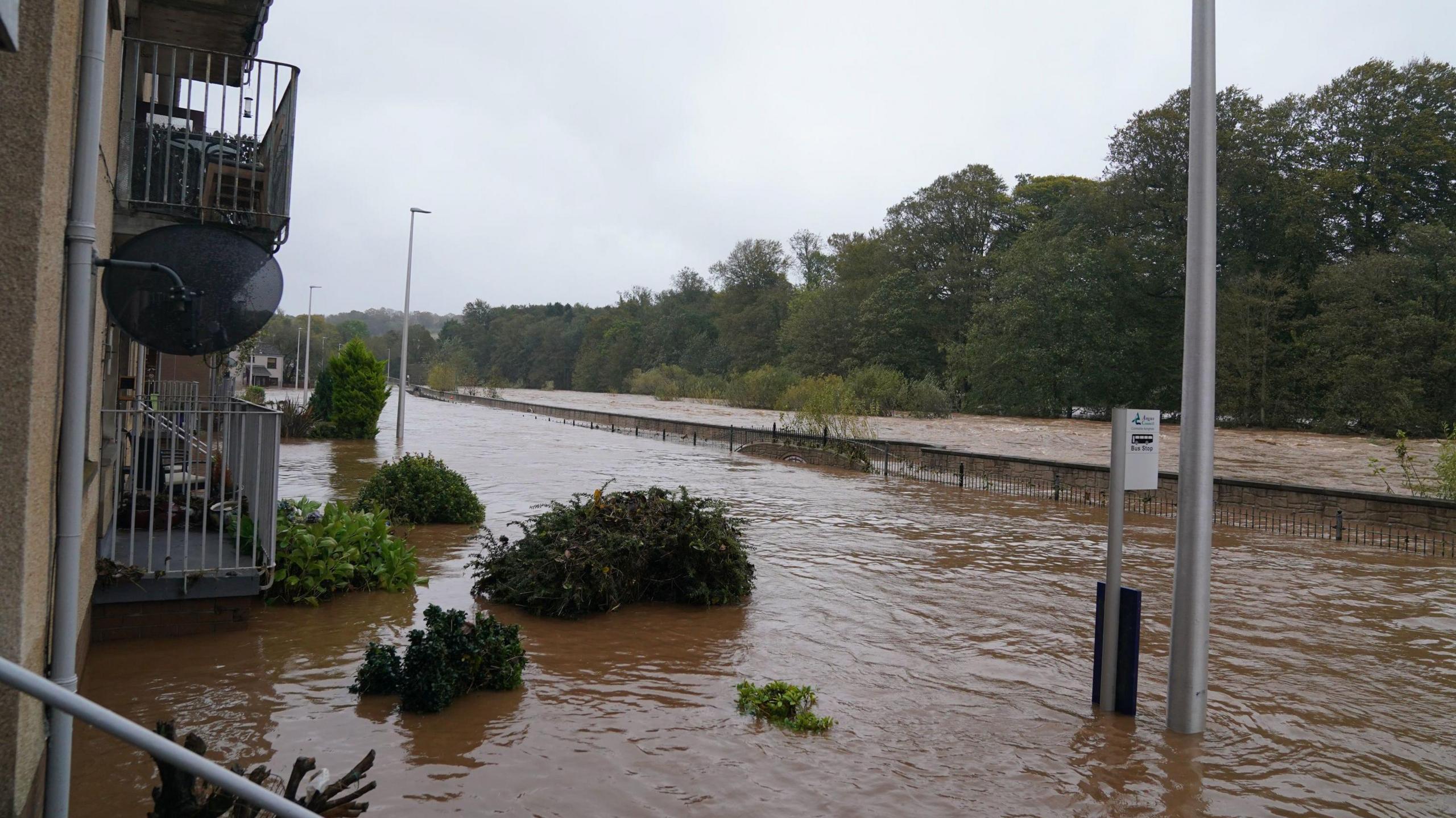
Storm Babet battered River Street in Brechin in October 2023
Modelling of rising sea levels over the next 50 years has placed many more properties at risk from coastal flooding.
Improving defences is seen as a vital step in avoiding and minimising disruption.
The Auditor General for Scotland, Stephen Boyle, said public bodies need to urgently address the critical gaps in roles and responsibilities.
He added: "Whilst there are good examples of the Scottish government collaborating with councils, communities and other public bodies, this isn't sufficient given the scale of future risks."
The total cost of damage to property in Scotland because of flooding is around £260m a year split between the public and private sector.
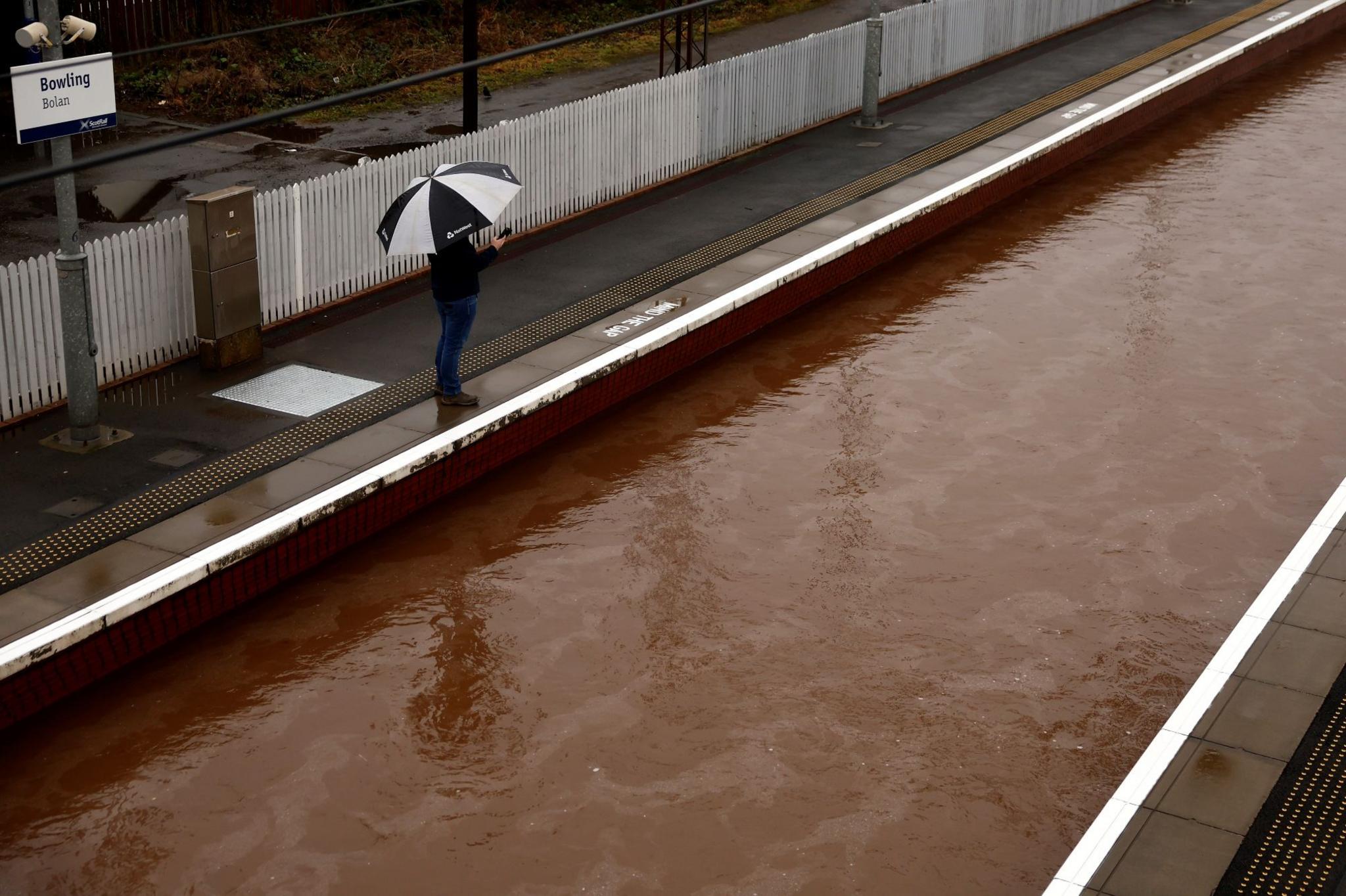
Flooding can cause damage and disruption to existing infrastructure like roads and rail
When intense floods are experienced, like those in Brechin, that figure can be much higher.
The report also points out that vulnerable populations, such as older people and those with long term physical and mental health issues, are being disproportionately affected.
It says many take longer to recover from the impacts of being flooded with those facing financial hardship often being unable to afford home insurance.
That can widen inequality in some communities, it adds.
A Scottish government spokesman said many of the report's recommendations align with work already under way to improve governance and processes for funding major flood protection schemes in future.
He added: "We have also recently provided funding to Sepa to improve coastal flooding monitoring and develop a national register of flood and coastal assets.
"In addition, we have established the Flood Resilience Strategy Implementation Governance Group with key partners to oversee implementation of the National Flood Resilience Strategy."